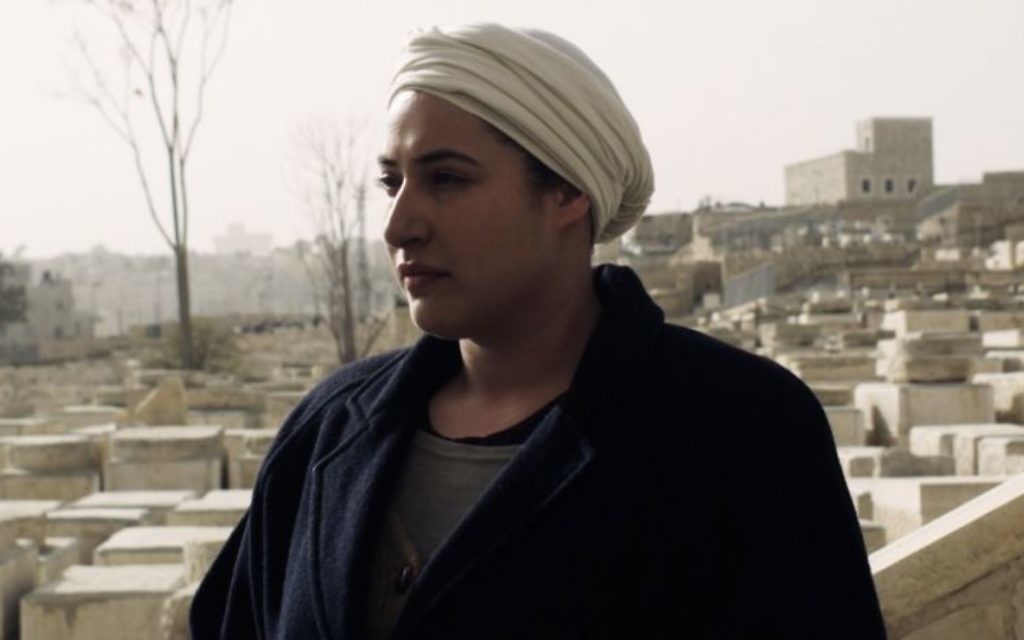AJFF Grows Into Starring Arthouse Role
The growth of the Atlanta Jewish Film Festival the past 15 years to become Atlanta’s largest film festival has helped improve the quality of films and thus increase the festival’s appeal.
It’s a positive spiral that hasn’t been hurt by the AJFF’s status since last year as the largest Jewish film festival in the world.
“I think probably because it’s the biggest in the world there are probably more filmmakers who will try” to get into the festival, said Judy Marx, who with Gabe Wardell heads the film evaluation committee. She said that because the festival takes more than 70 films — it has 51 features and 26 shorts this year — some filmmakers who are working outside the box will submit to Atlanta while not bothering with festivals that show a third as many movies.
Get The AJT Newsletter by email and never miss our top stories Free Sign Up
“One of the benefits of having that title of world’s largest is that (filmmakers) start with us,” festival Executive Director Kenny Blank said. “It allows us to secure premieres of major titles,” whether those are world, North American, U.S., Southeast or Atlanta premieres.
Blank said the festival gets about 100 blind submissions a year and perhaps 500 that staffers have researched and recruited to apply to the festival.
“Most of these films we get, they’re not tagged as for a Jewish audience,” he said. The festival staff looks for a variety of subjects and genres. “Finding the Jewish essence of some of these films is an art form.”
Marx said a film’s fit for the festival’s mission has supplanted quality as the first topic of conversation for the evaluation committee because plenty of submissions are good.
“If it didn’t feel like a fit, that was almost all it took to not include it,” she said. “A bunch that they submitted just didn’t meet the mission. It wasn’t Jewish or didn’t tell the story in a Jewish way.”
What makes a Jewish film is always a tricky issue, said Max Leventhal, who became the festival chairman this year after serving on and chairing the film evaluation committee in recent years. Films made in or about Israel are easy. For others, sometimes a Jewish approach or topic of Jewish interest, such as genocide, is enough, while sometimes a Jewish character outside a religious or cultural context is not.
Blank acknowledged that the process is subjective.
“I think if a film is good, it has wide cultural appeal beyond the Jewish lens,” Leventhal said. “I would hope a lot of our films transcend that. These are high-quality films people wouldn’t get to see otherwise.”
He said the mainstream focus on sequels and blockbusters has made it tougher for independent films to find screens. As a result, films the festival couldn’t have gotten 10 years ago now are available.
That’s an important if perhaps secondary role for the festival, Blank said: providing a place for challenging, unconventional, arthouse-type films in a city without many screens devoted to movies outside the mainstream.
He said he’s part of the audience for those films: people “looking for a different experience, who don’t want plots spoon-fed to them and ending tied up in a bow.”
He said “Tikkun” and “Mountain” from Israel, “Song of Songs” from Ukraine, and “Demon” from Poland are examples of the kinds of films that only the Atlanta Jewish Film Festival can show here.
In addition to the festival’s size, its place on the calendar is an asset, Blank said. Hollywood usually doesn’t make major releases in January and February because the audience shrinks after the holidays, creating an opening in the entertainment schedule and availability at the movie theaters that work with the festival.
Meanwhile, the Oscar season — beginning with nominations Jan. 14, 12 days before the festival, and ending with the awards show Feb. 28, 11 days after — creates an interest in prestige films, some of which, such as opening night’s “Remember,” come to Atlanta fresh off premieres at big international festivals, including Toronto.
Still, the key is the festival’s ability to curate the right mix of films and the audience experience, something Leventhal said is a festival strength.
“A great film is easy. A lousy film is easy. But some films require champions. You have to give voice to both sides, make sure both viewpoints are brought to the table and reported,” he said. “It fills me with great pride when a strong minority voice persuades a majority that a film should be in the festival.”






comments